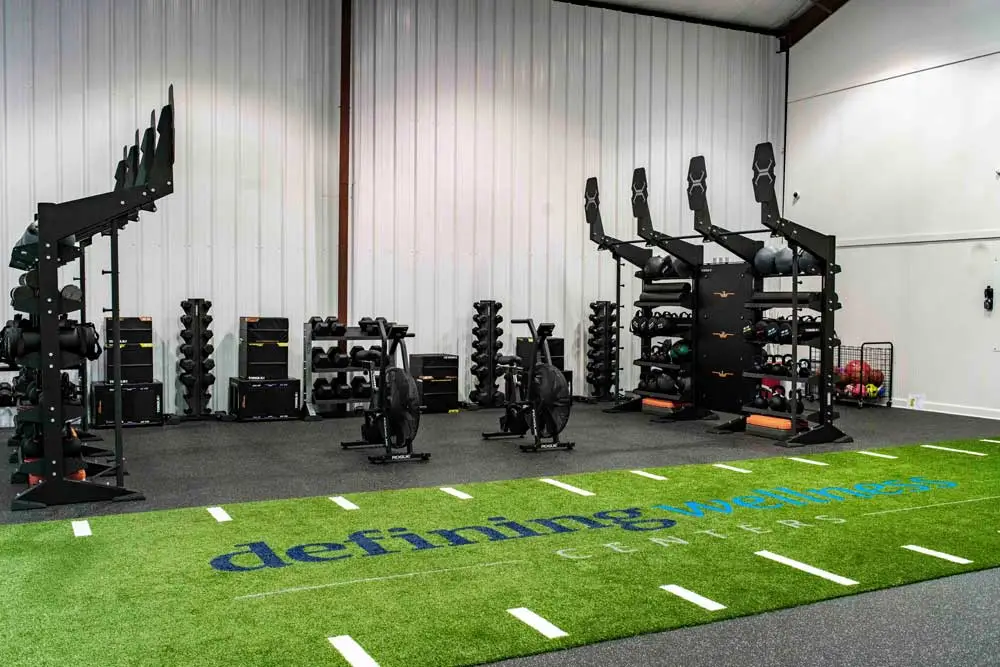How Does Addiction Affect the Family?
Substance use disorder does not just impact the individual consuming drugs or alcohol; the entire family dynamic suffers. Too often, families will ignore and try to cover up issues with substance use disorder in the family unit. However, recovery efforts are much more successful when the family is also part of the healing process.
There are benefits to both the loved one suffering and the family as a whole to partaking in family therapy during addiction recovery treatment.
What Are Some Signs of Dysfunction in a Family With Addiction?
The roles in a family with substance use disorder are drastically changed because the family is affected by the behaviors of the addicted person. The family learns to adapt, and although they think that they are helping control the family stress levels, the roles that they adapt to allow the person who is addicted to continue using the substance.
Commonly referred to as the family disease model, addiction is a family problem. This model suggests that if one member of the family unit suffers, the entire family system suffers with that person.
Family members will often pick up drinking or using drugs to cope with the family member who has an addiction. Substance use disorder can lead to an entire family of people suffering from addiction.
What Are Some Typical Roles Played in a Family With Substance Use Disorders?
There are some typical roles found in families where addiction is present. People adapt to stress, and, usually, the spouse or the children have no way of controlling the problems in the family. To cope with the chaos that accompanies substance use disorder, family members take on new roles in the family dynamic.
Addiction is a family dysfunction, but most people who suffer from addiction think they are only hurting themselves. There are usually six different types of members in the family dynamics with a substance use disorder. Some of the traditional roles that family members will adapt to include the following.
The Addicted Person
The person with the substance use disorder is the center of attention in the family dynamic. They may function alright initially, but as the addiction progresses, they become erratic and dishonest and blame others for their actions.
The Caretaker or Enabler
The caretaker is a familiar role in addiction families, and it is usually a spouse or a parent of the person with the substance use disorder. This person attempts to help but usually makes their problems worse.
Some ways the caretaker can enable the addict are:
• Excusing behavior
• Giving money
• Lying or covering up for them
The addicted individual doesn’t get to go through the negative consequences of their actions because of the enabling. Instead of enabling, the caretaker should allow the addicted family member to feel the adverse effects of their actions and create boundaries. People are more likely to reach out for help and get treatment when they are forced to withdraw from the substances.
The Scapegoat
The scapegoat usually is the child who acts out to get negative attention. The scapegoat turns to negative behavior to turn the attention away from the addicted person.
Because the family denies the alcoholism or addiction and instead focuses blame on the scapegoat child, they believe everything is their fault, which continues into adulthood. As a result, they tend to be involved in abusive relationships, have poor boundaries, and can’t decipher between good or bad intentions. Sometimes the scapegoat is the “black sheep” of the family.
The Lost Child
The lost child is the child who generally copes by escaping into fantasy. Reality is too complicated for them to live in, so they create an inner world of fiction comforting them.
The lost child is usually quite creative. They can grow up to become painters, writers, or musicians. As adults, they are independent and self-reliant. However, they feel sad, angry, and isolated, and as a result, they tend to stay out of the family drama.
Later in life, the lost child finds it difficult to form close relationships with others and to trust them. Usually, these people are content alone and mainly involved in their creative careers or hobbies.
The Mascot
The mascot role is usually the jokester. They must get attention away from the addicted individual or try to get that person’s attention. Humor is a comforting coping skill for the mascot.
They grow up making light of everything and find trouble taking things seriously. The jokes are like a mask for their feelings. They tend to grow up and not take personal relationships thoughtfully enough and may scare others away.
The Hero
The hero is often the firstborn child. They may be a child of alcoholic parents. Alcoholism tends to make people more critical than usual, so the hero feels like nothing they do is ever good enough to please their parents.
The hero hopes that if they excel in everything, the parent with the substance use disorder will stop drinking or using. The hero has a high standard because of the criticism they grew up around. The hero then strives for perfection.
As an adult, they become an overachiever and can sometimes be successful. The hero often harbors resentment toward the one with the substance use disorder. They might also attempt to try to correct the addicted person’s behaviors.
Are These Roles Beneficial to the Recovery?
In an average family, the role each member chooses is for the benefit of the family, usually in a positive way for everyone to feel comfortable and loved. However, in the family structure of addiction, all family members are affected and adjust to the chaos in the best way they know.
They adapt to the stress instead of helping the person with an addiction. Sometimes, they can make the situation worse, especially the members of the family who lie for the addict or give the addict money.
There is no way for the person suffering from addiction to reach rock bottom if people in the family continue to rescue them. Rock bottom is generally the time when many people decide to seek treatment.
The Importance of the Family Roles in Recovery
For the person who has a substance use disorder to recover successfully, the family should support them. In addition, the dysfunctional roles that the family plays should get addressed in family therapy.
Family therapy is often a good choice for learning communication skills and setting boundaries. The entire family can learn to change behavior patterns that substance use caused by the addiction.
If everyone learns positive coping skills, the addicted loved one has a higher chance of recovery. But, most importantly, the family can heal and move forward.
For recovery to work, the loved one with substance use disorder needs a robust support system. Healing the family alongside the person may provide a strong support system option. However, if this is not possible for various reasons, then support groups such as Narcotics Anonymous or Alcoholics Anonymous can be very helpful in the recovery process.
If the family is still dysfunctional or unwilling to heal, they can potentially derail the recovery. Family therapy is used to help heal families by using a trained therapist and the family unit members coming together to work on the issues within the dynamic.
Some methods of family therapy that can be successful during treatment are:
• Teaching how to set boundaries
• Coaching communication skills
• Teaching to resolve conflicts
• Discussing stigmas with addiction
• Working on financial issues
• Showing coping skills
• Fixing broken bonds
• Addressing any mental health issues
• Treating any other substance use disorders in the family
Goals of Family Based Services in Recovery
Research shows that family-based services involved in the treatment process lead to a more successful recovery outcome.
Family-based services or family therapy hopes to:
• Heal other family members of their issues
• Educate the family on substance use disorder and relapse signs to watch out for
• Increase the family’s support of their loved one’s recovery
• Identify patterns of behaviors in the family dynamic that may be harmful to the recovery process
Other Issues Within the Family Dynamic That Treatment Can Support
It is vital to provide treatment to both the person suffering and the family who watches their loved one’s struggle. Dysfunction in the family may lead to codependency. Occasionally, the enabler is the one who becomes codependent.
A few characteristics of codependency are:
• Denial
• Repression
• Obsession
• Focus on others
• Difficulty expressing and identifying emotions
• Sacrificing personal needs to meet the needs of the other
Codependency is more than just caring for another person; it happens when the caretaking of the other person becomes excessive. People tend to do things they don’t want to do to please others. For example, feeling guilty for taking time for yourself is another sign of codependency. Many treatment centers offer dual diagnosis therapy to treat substance use disorder and codependency co-occurrence.
How to Set Healthy Boundaries
Boundaries are emotional and physical limitations put forth with family members to protect you from unhealthy relationships. Remember, as difficult as it may feel to set healthy boundaries with your loved one, this step is vital to their recovery. You hate to watch your loved ones face the consequences of their actions, but they must feel the negatives to heal and gain the positives of recovery.
Setting boundaries helps let the person know that some of their behaviors affect you. Even if they get upset first, it is alright because setting healthy boundaries can assist in healing family dysfunction and codependency.
Possible Benefits to Treating the Family in Recovery
There are better relapse prevention and recovery outcomes when family therapy is an integral part of recovery. Addiction impacts every member of the family dynamic, and recovery efforts also affect every family member. It is up to you to set boundaries and practice better communication. But like the recovery of your loved one, it requires some work on your part.
Family support groups can provide benefits to the family in many ways. Therapy and support groups offer benefits such as:
• Learning positive coping skills
• Understanding addiction better
• Rebuilding relationships in a healthy way
• A better chance for a successful recovery for your loved one
• Learning from the experience of others in similar situations
How Can Family Support the Recovery Process After Treatment?
Positive social support is vital in maintaining long-term recovery. You can help your loved ones continue their recoveries after treatment in different ways.
Some ways that you can assist your loved one after treatment are:
• Abstaining from drugs or alcohol use
• Reinforcing your continued support and encouraging your loved one
• Attending support groups and family therapy after treatment
• Continuing to work on maintaining healthy boundaries
• Practicing positive communication with your loved one
• Expressing concern if you notice any relapsing behaviors
• Keeping your loved one accountable
• Encouraging them to partake in exercise or yoga to fight off cravings
Support of the Family Is Vital for the Recovery Process
Recovery from addiction is not a quick and easy fix. It is a lifetime of maintaining healthy coping skills and behaviors. With the support of the family before, during, and after treatment, many people with substance use disorders have successful life-long recoveries.
People need social interactions to thrive as human beings. If you notice any isolation behaviors from your loved ones, ask them if they are doing well and offer help if they need it.
We Offer Specialized Professional Treatment for Addiction
If you or a loved one are suffering from a substance use disorder, please reach out to Defining Wellness Centers for help. We strive to provide our clients and the family, the utmost quality treatment and care. We offer family therapy for the mind, body, and spirit. Contact us today to discuss a personal treatment program designed specifically for you or the success of a loved one in recovery from addiction.









